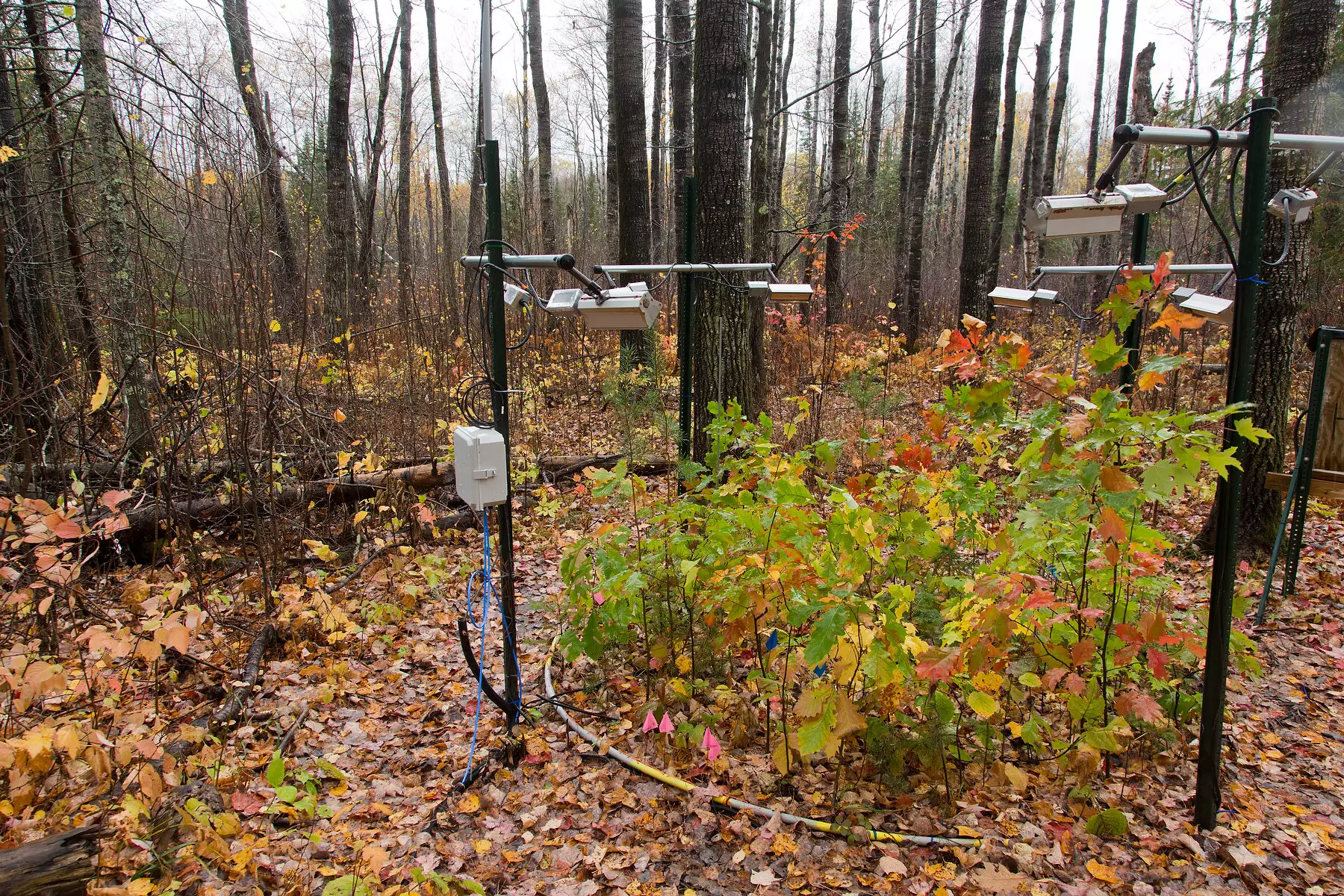

The soils of northern forests play a crucial role in maintaining the balance of carbon dioxide in the atmosphere. They act as key reservoirs that prevent the carbon dioxide absorbed by trees from being released back into the air. However, a recent experiment led by Peter Reich from the University of Michigan has revealed a troubling trend – as the planet warms, more carbon is escaping from the soil than is being absorbed by plants.
The study, published in Nature Geoscience, highlights the fact that as temperatures rise, soils are likely to give back some of their carbon to the atmosphere. This is concerning news for the global climate, as losing more carbon will have negative repercussions. The lead author of the study, Guopeng Liang, emphasized the importance of understanding how rising temperatures impact the carbon cycle in order to better predict climate changes.
Reich and his team conducted a unique experiment that controlled both soil and above-ground temperatures in open air settings for over a dozen years. This approach, which is considered to be the most realistic experiment of its kind, allowed researchers to observe the effects of temperature on carbon flux in forest soils over an extended period of time. The study was conducted at two sites in northern Minnesota and involved a total of 72 plots subjected to different warming scenarios.
One of the key findings of the study was the increase in soil respiration as temperatures rose. The process of soil respiration, which releases carbon dioxide, increased by 7% in plots with a modest temperature increase and by 17% in plots with a more extreme temperature rise. This increase in carbon release is attributed to the metabolism of plant roots and soil microbes, which consume carbon-containing substances and breathe out carbon dioxide.
While the study found a significant increase in carbon release with higher temperatures, the researchers noted that soil moisture levels also played a role. Warmer temperatures led to faster water loss from plants and soils, resulting in drier conditions that constrained soil respiration. This indicates that the impact of temperature on carbon release is influenced by multiple factors, including soil moisture content.
Reich emphasized that the results of the study point towards a worrisome trend – forests are likely to lose more carbon as temperatures continue to rise. This loss of carbon from soils poses a significant threat to the global climate and highlights the urgent need for measures to mitigate the effects of global warming on soil carbon release.
The study led by Peter Reich sheds light on the detrimental impact of rising temperatures on soil carbon release in northern forests. As the world continues to warm, it is imperative that we take action to safeguard these important carbon reservoirs and mitigate the consequences of increased carbon release into the atmosphere.
Rogue waves have long been a subject of fascination and terror in maritime lore. These…
As the world grapples with public health challenges, especially those posed by infectious diseases, the…
The Sombrero Galaxy, also known as Messier 104, embodies a breathtaking blend of spirals and…
In recent advances in quantum electronics, a groundbreaking discovery leveraging the concept of kink states…
In the intricate tapestry of nature, ice often exists in a delicate balance with liquid…
In an astonishing event that captured global attention, a rogue object from beyond our Solar…
This website uses cookies.